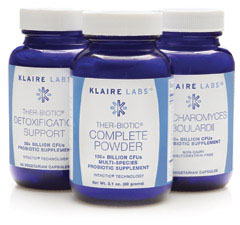 A lot of people are going gluten-free these days – is gluten free hype or a real and growing trend?
A lot of people are going gluten-free these days – is gluten free hype or a real and growing trend?
I would argue that it’s a real and growing trend, and it’s not just because the number of patients diagnosed with celiac disease is growing.
Gluten Isn’t What It Used to Be
A whole host of publications have come out recently that argue against gluten in the diet (“Grain Brain“, “Wheat Belly” and “The Dark Side of Wheat“), mainly because the gluten we eat today, which comes mainly in the form of wheat, is not the same as what our grandparents ate.
Wheat has been hybridized and genetically manipulated to the extent that our bodies recognize it as foreign and unfriendly.
In fact, recently there was an online “Gluten Summit“, in which celiac researchers, functional-medicine doctors and holistic nutritionists collectively agreed that gluten should be removed from our most, if not all, of our diets.
Effects of Gluten on Our Bodies
As more and more people discover that their allergies, asthma, autoimmune diseases and neurodevelopmental disorders are exacerbated by food allergies and intolerances, these people discover that removing allergenic foods, such as gluten, from their diets makes them feel better.
Removing gluten from your diet can relieve you from a lot of symptoms that you might typically take an over-the-counter medication for such as bloating, headaches, constipation, diarrhea, inability to focus, fatigue and joint pain.
The best way to know if gluten is affecting you is to be a food detective. Eliminate all forms of it (wheat, rye, barley, soy sauce, non-gluten-free oats and more) from your diet for at least a week, then add it back in. Beware of hidden sources of gluten, such as those found in salad dressings, soups, puddings, processed meats and ice cream.
Keep a food journal and keep an eye out for any unusual symptoms, such as the ones I described above. They might not just be a coincidence, and they might take 2 or 3 days to reappear, so be patient.
Working Gluten-Free Foods into Your Diet
I don’t recommend that you replace all of your gluten-filled foods with their gluten-free counterparts. Doing so will get you a lot of gluten-free junk food. Typically, these pancakes, cookies, waffles, breads, etc. are loaded with corn and potato starch as dough softeners, and adding more of these high-glycemic starches to your diet can adversely affect your blood sugar.
Instead, I recommend adding in gluten-free whole foods into your diet: brown rice, wild rice, buckwheat, millet, amaranth, quinoa, non-GMO corn and potatoes are great starting points. If you’re baking, my favorite grain-based gluten-free flour is sorghum, or you could try non-grain flours made from coconuts or nuts.
Here are some easy gluten-free recipes for you try out this holiday season:
 I’d like to let everyone know that I am now offering my clients world-class probiotics from Klaire Labs and supplements from their parent company, ProThera.
I’d like to let everyone know that I am now offering my clients world-class probiotics from Klaire Labs and supplements from their parent company, ProThera. Yet another study shows that C sections and feeding your baby formula instead of breastmilk can change your baby’s gut flora for the worse, leading to gut dysbiosis.
Yet another study shows that C sections and feeding your baby formula instead of breastmilk can change your baby’s gut flora for the worse, leading to gut dysbiosis. This video was shown in late 2012 at the Congressional hearing about the autism epidemic: “How Mercury Causes Brain Neuron Damage”. Also, “we should be focusing on the dietary aspects” in relation to autism. Parents have to do their own research, and researchers don’t listen to them.
This video was shown in late 2012 at the Congressional hearing about the autism epidemic: “How Mercury Causes Brain Neuron Damage”. Also, “we should be focusing on the dietary aspects” in relation to autism. Parents have to do their own research, and researchers don’t listen to them. It’s something that biomedical doctors, functional-medicine doctors and naturopaths have known about for years, but the
It’s something that biomedical doctors, functional-medicine doctors and naturopaths have known about for years, but the  Restoring your adrenal health can improve your mood, metabolism, and immune function. “Common warning signs to look out for include:
Restoring your adrenal health can improve your mood, metabolism, and immune function. “Common warning signs to look out for include:

